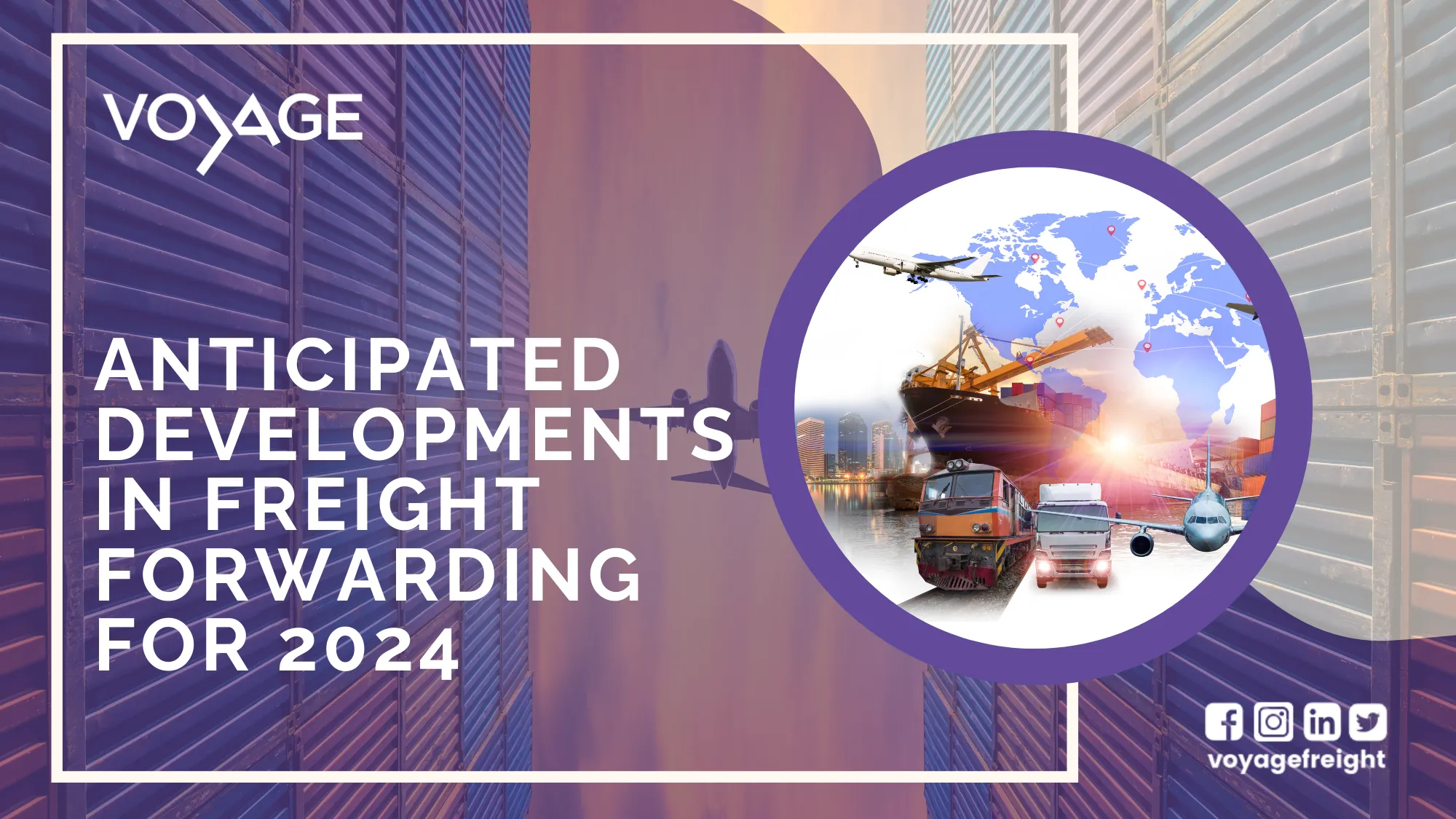
Anticipated Developments in Freight Forwarding for 2024
The landscape of freight forwarding is in a constant state of flux, propelled by global economic shifts, technological advancements, and evolving consumer expectations. This blog delves into five trends poised to shape the trajectory of freight forwarding in 2024 and beyond.
1. Enhanced Capacity Amid Demand Fluctuations
The transport and logistics sector is currently grappling with a dual challenge of diminishing freight demand alongside a surge in capacity. The international shipping association, BIMCO, projections indicate a modest 3-4% increase in global container volumes in 2024, coupled with a significant 7.8% growth in the global ocean fleet, reaching a peak of 2.7 million TEU. Despite a 9% increase in air freight forwarding capacity in 2023, demand remains lukewarm.
For freight forwarders, this scenario intensifies competition, necessitating heightened efforts to distinguish themselves in the market through exemplary customer service and value-added offerings. Operational efficiency becomes paramount for maximizing profitability, while rates face continued impact as carriers vie for a reduced pool of cargo.
2. Climate Change and Geopolitical Tensions Take Centre Stage
In contrast to the unpredictability of black swan events in 2023, 2024 shifts focus toward the disruptive forces of climate change and geopolitical unrest. These factors can disrupt resource supplies, sever transportation routes, disrupt production, and escalating costs.
Increasingly frequent natural disasters, such as droughts, hurricanes, and wildfires, are already impacting transportation routes like the Panama Canal, the Yangtze River in China, and the Rhine in Europe. Global geopolitical tensions have the potential to influence supply chain operations and investments. In response, freight forwarders must prioritise agility, flexibility, and visibility to effectively anticipate and navigate supply chain disruptions.

3. Consolidation Waves in the Industry
The freight forwarding sector’s mergers and acquisitions market, which has been robust since the onset of the pandemic, shows no signs of abating in 2024. Predicted as a ‘year of consolidation’ by industry experts, smaller independent forwarders may experience heightened consolidation as enterprises without a niche struggle to compete with larger counterparts. Simultaneously, larger forwarders seize opportunities to acquire competitors and expand their portfolios.
4. Sustainability Commitments Face a Crucial Test
In 2024, the transport and logistics sector face a pivotal moment in the journey toward sustainability and decarbonization. New reporting and disclosure requirements in the European Union and anticipated scrutiny from the International Maritime Organization underscore the sector’s commitment to reducing greenhouse gas emissions.
Businesses are increasingly pledging to enhance the sustainability of their supply chains, yet the challenge lies in sustaining this momentum amidst a challenging business environment. The acceptance of added costs for sustainable logistics and the prioritization of collaborations with carriers dedicated to sustainability remain key questions.
5. Digitalization Becomes Non-Negotiable
Digital freight forwarders, though not meeting initial expectations, have highlighted the critical role of digitalization for all forwarders. In 2023, traditional forwarders struggled to match the growth and profitability of their digital counterparts. However, recognizing the importance of advanced technology solutions, more traditional forwarders are investing in digital capabilities to meet customer demands and ensure operational efficiency.
The integration of ‘track and trace’ capabilities and the pursuit of user-friendly platforms demonstrate the industry’s commitment to digitalization. Behind the scenes, digital tools play a crucial role in crisis anticipation, response, decision-making, and sustainability optimization. Despite the associated costs, a consensus has emerged within the industry that building digital capabilities is imperative for business viability. According to Accenture research, 76% of freight and logistics companies believe that neglecting digital capabilities poses a serious threat to their business.
Navigating the Future of Freight Forwarding
In 2024, freight forwarders confront substantial challenges, including economic uncertainty, political instability, and technological disruptions. However, amidst these challenges lie opportunities, particularly in technology and sustainability. Through strategic investments, meticulous planning, and a commitment to resilience, freight forwarders can position themselves for success in this evolving landscape.

